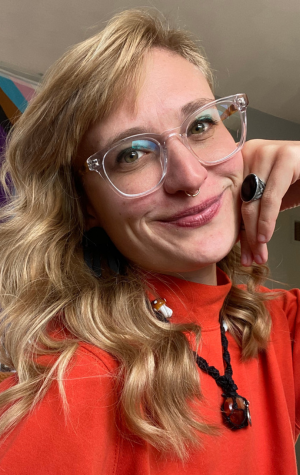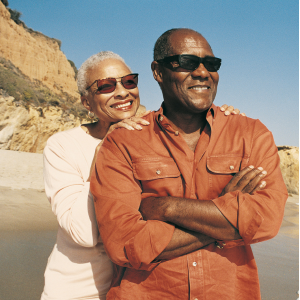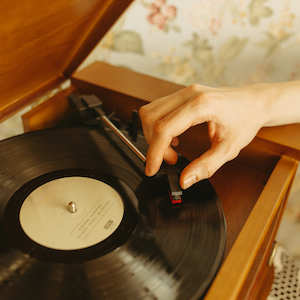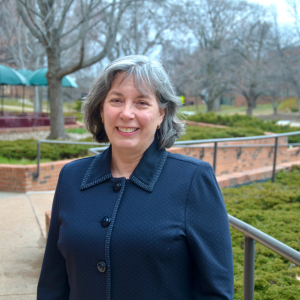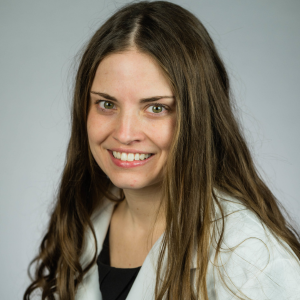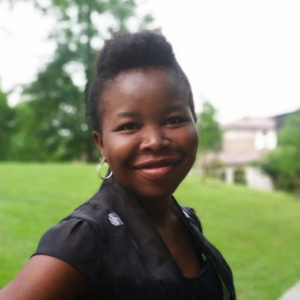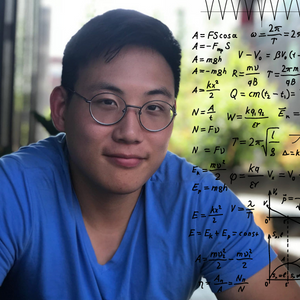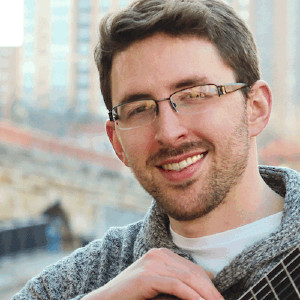Kanyn Doan’s Classrooms Span the Ages
Nearly 300 University of Minnesota graduate students and postdoctoral researchers have honed their teaching skills through the OLLI Scholars program since its founding in 2008. Hosted by the Osher Lifelong Learning Institute (OLLI), the Scholars develop curricula and lead courses in their respective areas of expertise for OLLI members, the majority of whom are over 50 years old. Scholars receive $1,000 stipends as compensation for their work, but most find greater value in the experience of teaching and learning in a multigenerational classroom.
The Scholar
Kanyn Doan, BA, Grand Valley State University, is a community outreach educator with Planned Parenthood of Michigan. A resident of the state, Kanyn began her graduate studies with the College of Continuing and Professional Studies (CCAPS) when she enrolled in the College’s online Human Sexuality Certificate, which she later applied toward a Master of Professional Studies (MPS) in Sexual Health.
This past December, Kanyn received her MPS degree and an additional certificate in Transgender and Gender Diverse Health—both earned from her home in Michigan.
In her final semester at the University, Kanyn taught The ABCs of Sexual Health: Autonomy, the Body, and Consent as an OLLI Scholar.
In Her Own Words
What prompted your interest in becoming an OLLI Scholar?
The work that I do through Planned Parenthood often centers on providing school-based education to middle and high school students. I rarely get to engage with adults, let alone older learners. I had a feeling that this would be a unique chance to learn what education older adults are interested in receiving in regards to sexual health, and be able to learn from them in a really significant way. My MPS program was also coming to an end, and I wanted a way to commemorate all I have learned in this program, and apply it in an impactful way.
What has surprised you or has been unexpected about the OLLI teaching experience?
The older adults that I have had the privilege of learning alongside have asked questions that have caused a deep pause in me—the questions are big, abstract, critical, and considerate. The scope of these questions are so different than the ones I am usually answering, which has allowed me to really hone in on my skills as an instructor, and think about the way in which my words, my responses, and my reasoning have an impact.
During the first class, I had the learners introduce themselves and tell us what they were most looking forward to in the class. One learner responded with: "I want to know more about the world I will be leaving."
"The older adults that I have had the privilege of learning alongside have asked questions that have caused a deep pause in me—the questions are big, abstract, critical, and considerate."
This statement has lived in my mind. I often describe youth as sponges of information: they absorb what you say, especially as an entrusted educator. These elders are no different—they fully absorb all of the big, vast, and sometimes abstract aspects of sexual health I am throwing at them, and it is a humbling process to be a part of.
COVID-19 has changed the educational landscape in many ways. For example, you have been able to take all of your CCAPS graduate coursework online from your home in Michigan. And now you are teaching an online course for OLLI at the University of Minnesota, again from your Michigan residence. How has the ubiquity of online learning informed the way you engage as a student?
Online learning is a gift, and I am so fortunate to exist in a time where I was able to access this education living hundreds of miles away from the institution. I am a community-oriented person, and there have been times when it felt isolating to engage, especially when there are opportunities and events happening on campus or in the Twin Cities community.
Whether I am in person or on an online platform, I am going to engage in information, education, and knowledge in the same way, and be consistently seeking out opportunities to learn, connect, and collaborate.
I think my pursuit of the OLLI opportunity speaks to this.
And as an instructor?
I actually began teaching on Zoom in my current role at Planned Parenthood, so I think it has had a large impact on how I show up as an instructor overall. I often utilize different forms of media to shake things up, but I think most importantly, I respect how people choose to show up online, and I show up exactly how I would show up if we were in person. Being an online student has helped me in this, and observing how my own instructors structure learning environments has been impactful.
In your role as an educator for Planned Parenthood, you teach young people. Conversely, your OLLI students are older adults. What are some of the similarities and differences of learners who belong to varied generations and likely have varied experiences with regard to sexual health and sex education?
There is an absolute abundance of curiosity, receptivity, and respect that is shared between younger and older learners. Older learners appreciate research, numbers, and trends, whereas younger learners seem to gravitate more towards tangible and kinetic learning, and appreciate activity-based spaces.
"What I have witnessed is that we underestimate both sets of learners in their ability to not only critically engage in these conversations, but also to apply this education to their own lives."
Similarly, learners of both age groups have a deep desire to have these conversations, and to learn about the various aspects of sexual health. Younger learners tend to be more internal processors (mostly because of the well-known politics of high school) and elder learners tend to be more vocal in their processing.
The conversations are so different, but both hold a willingness to talk about arguably one of the most stigmatized topics in our culture, and also have an unwavering understanding of the importance of gaining more education around sexual health.
What I have witnessed is that we underestimate both sets of learners in their ability to not only critically engage in these conversations, but also to apply this education to their own lives.
How has your OLLI Scholars experience impacted your approach to education?
I would say that it has made me an even more attentive, empathetic, intentional educator, and has allowed me to identify the gaps in my own education, approach, and facilitation style.
I have learned as much as I hope the OLLI learners have, and I will forever cherish the opportunity to engage in this unique and impactful opportunity. I couldn't imagine a better way to celebrate and bring my graduate degree to a close than this experience.
What OLLI Members Are Saying
“Kanyn’s passion for teaching and knowledge of the subject matter are evident in her ability to authentically engage older adults in discussions of sexual health. Successfully creating a safe environment in which to discuss sensitive contemporary issues (e.g., gender, consent, and relationships), Kanyn answers questions candidly and provides us with additional resources to expand our understanding and broaden our perspectives. Excellent course.”
—Kim Kvale, OLLI member
You can learn more about Kanyn’s work with young people in Creating Access and a Safe Space for Youth.
Would you or someone you know make a great OLLI Scholar? You can learn more about the application process and deadlines by visiting OLLI’s Intergenerational and Intercultural Programs web page.
You can support UMN graduate students and post-doctoral researchers through the OLLI Scholars Program Fund.
Anastasia Faunce is a writer and content strategist with the College of Continuing and Professional Studies, covering the College’s personal enrichment, pre-college, ESL, and long term care programs, as well as its engagement efforts. The former director of several CCAPS programs, she worked as the director of public relations for the Minneapolis College of Art and Design prior to joining the University. Connect with her via LinkedIn.

